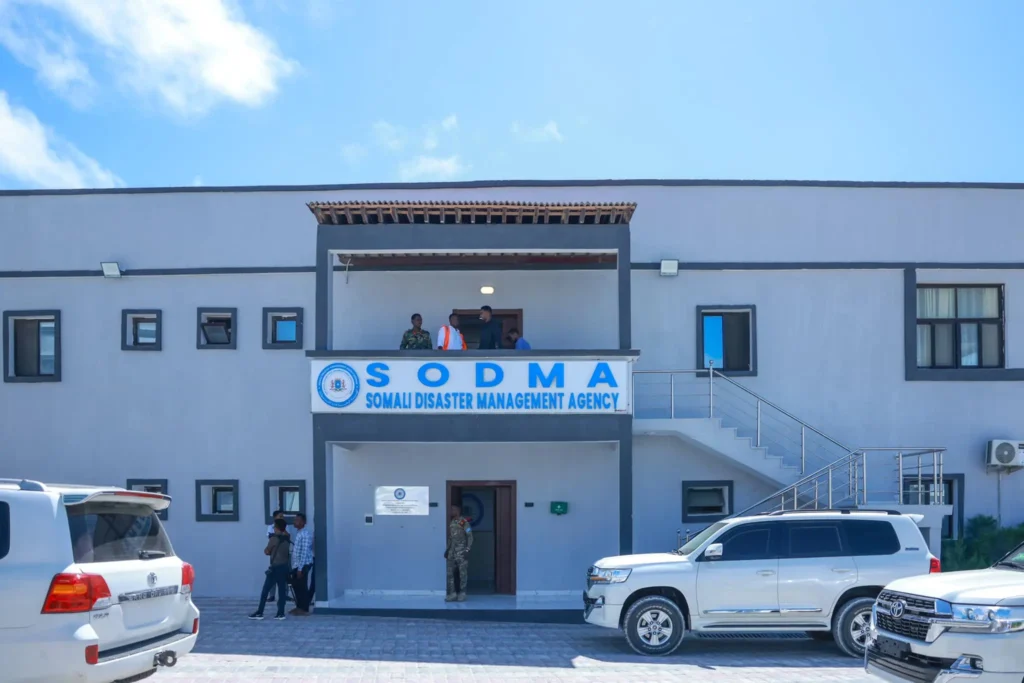Doogsan Media | Garowe | 31 August 2025
Tensions between Puntland and the federal government have now spilled into the humanitarian arena. Relief deliveries to areas recently recaptured from ISIS remain blocked after Puntland rejected a federal request to send aid and evacuate wounded soldiers.
SODMA Director-General Mahmoud Moallim told reporters that he had sought clearance to provide medical care for injured troops and distribute assistance to civilians in Calmiskaad, a northeastern district secured by Puntland forces and allies. He said his request was denied, linking the decision to the political standoff between Garowe and Villa Somalia.
Puntland officials strongly defended their position. Minister of Relief and Disaster Management Ubah Abdirashid Mohamed Hirsi accused SODMA of mishandling earlier operations. She said expired drugs and leftover COVID-19 supplies had been dumped on communities in need of proper care. She cited Moqokori in Hiiraan, where residents facing Al-Shabab asked for wound treatment but instead received pandemic stockpiles. “Puntland will not accept expired kits or useless equipment,” she said.
Moallim criticized Puntland’s refusal, comparing it to blockade tactics used by militant groups. He warned that restricting federal relief risks denying civilians lifesaving help. Aid experts echoed concern, saying that if political rivalries dictate humanitarian access, frontline families will suffer most.
For Puntland, the issue is deeper than one shipment. Officials say they cannot trust an agency already accused of corruption, poor management, and politicization of aid. They argue that transparent checks, clear inventories, and quality control must be in place before any future deliveries.
The dispute reflects longstanding mistrust between Mogadishu and Garowe. It comes as Somalia faces dual battles against Al-Shabab and ISIS. Observers say the standoff highlights how political feuds can disrupt relief and weaken security gains.
Puntland insists its position is not against humanitarian aid, but against unsafe and unverified supplies. The region has called for joint inspection teams, donor oversight, and credible systems to ensure assistance reaches people in need.
